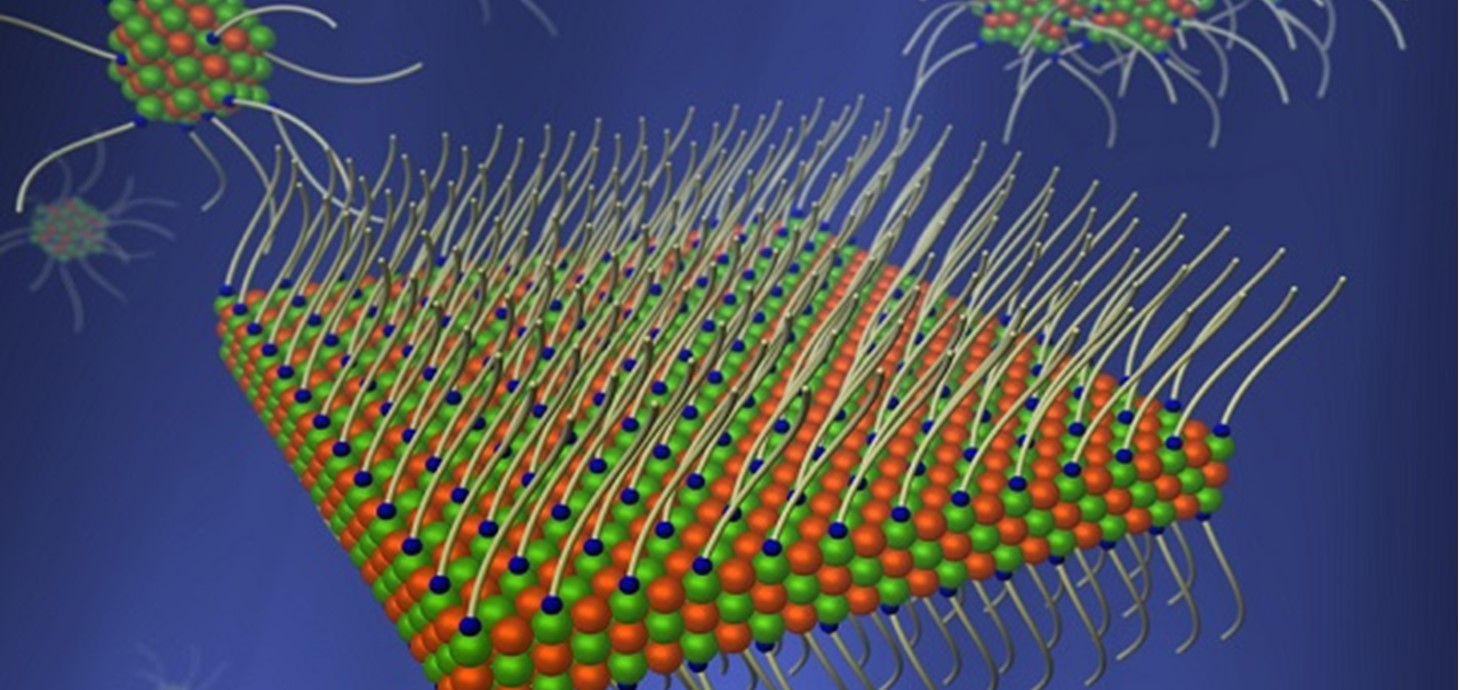
The synthesis of lead sulphide nanoparticles: the new appointments will strengthen research on nanocrystalline materials, which are used in solar cells, light-emitting diodes, and fast transistors
An expert in nanomaterials who is based in Swansea and Germany has secured around £250,000 of funding from the Humboldt Foundation to recruit early-career scientists to join his research team.
Professor Christian Klinke, who works jointly at the University of Rostock in northern Germany and in Swansea University chemistry department, has been appointed as a Henriette Herz Scout by the Humboldt Foundation, one of the world’s most prestigious scientific organisations.
This allows him to select talented international scientists – one a year between now and 2024 - and recruit them for his research group.
Each scientist will receive a two-year fellowship from the Alexander von Humboldt Foundation.
The research group focuses on nanocrystalline materials, which are used in solar cells, light-emitting diodes, and fast transistors. It examines their properties, which are often determined by quantum mechanical effects.
The group already receives research funds from the Humboldt Foundation, and the new appointments will further strengthen its work.
Professor Christian Klinke said:
"The research projects of the scholarship holders will make an important contribution to the projects of our interdisciplinary working group.
Though based in Germany, the scholarship holders will carry out joint research in co-operation with Swansea groups and may be involved in teaching Swansea students.“
Professor Owen Guy, head of Swansea chemistry department, added:
"This prestigious award further strengthens the links between Swansea Chemistry and the University of Rostock, with the joint research and teaching activities adding a new dimension to the nanomaterials research portfolio at Swansea."
Every year, the Alexander von Humboldt Foundation enables more than 2,000 researchers from all over the world to undertake an academic stay in Germany. The Foundation maintains an interdisciplinary network of over 30,000 Humboldtians, including Professor Klinke, in more than 140 countries.
The Henriette Herz programme was introduced by the Foundation to support young scientists.
Henriette Herz (1764-1847) was a writer and organiser of literary salons and discussion groups on scientific and philosophical topics. Participants included the von Humboldt brothers.
The programme aims to support female researchers in particular, which will be reflected in the appointments to be made by Professor Klinke.
